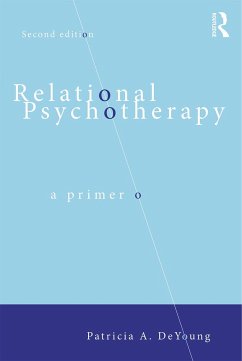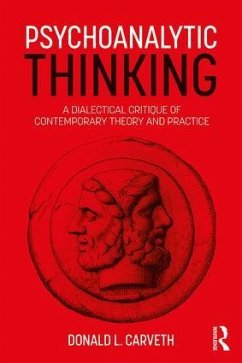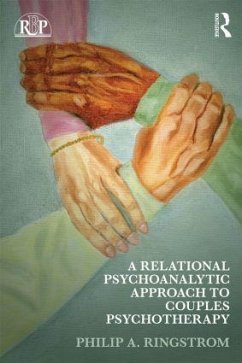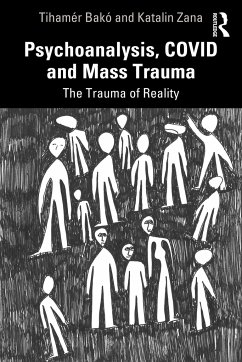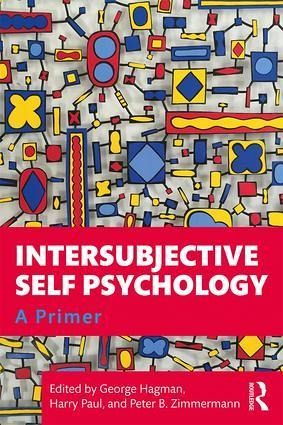
Intersubjective Self Psychology
A Primer
Herausgegeben: Hagman, George; Paul, Harry; Zimmermann, Peter B.
Versandkostenfrei!
Versandfertig in 6-10 Tagen
39,99 €
inkl. MwSt.
Weitere Ausgaben:

PAYBACK Punkte
20 °P sammeln!
Intersubjective Self Psychology: A Primer offers a comprehensive overview of the theory of Intersubjective Self Psychology and its clinical applications. Readers will gain an in depth understanding of one of the most clinically relevant analytic theories of the past half-century, fully updated and informed by recent discoveries and developments in the field of Intersubjectivity Theory. Most importantly, the volume provides detailed chapters on the clinical treatment principles of Intersubjective Self Psychology and their application to a variety of clinical situations and diagnostic categories...
Intersubjective Self Psychology: A Primer offers a comprehensive overview of the theory of Intersubjective Self Psychology and its clinical applications. Readers will gain an in depth understanding of one of the most clinically relevant analytic theories of the past half-century, fully updated and informed by recent discoveries and developments in the field of Intersubjectivity Theory. Most importantly, the volume provides detailed chapters on the clinical treatment principles of Intersubjective Self Psychology and their application to a variety of clinical situations and diagnostic categories such as trauma, addiction, mourning, child therapy, couples treatment, sexuality, suicide and sever pathology. This useful clinical tool will support and inform everyday psychotherapeutic work.
Retaining Kohut's emphasis on the self and selfobject experience, the book conceptualizes the therapeutic situation as a bi-directional field of needed and dreaded selfobject experiences of both patient and analyst. Through a rigorous application of the ISP model, each chapter sheds light on the complex dynamic field within which self-experience and selfobject experience of patient and analyst/therapist unfold and are sustained. The ISP perspective allows the therapist to focus on the patient's strengths, referred to as the Leading Edge, without neglecting work with the repetitive transferences, or Trailing Edge. This dual focus makes ISP a powerful agent for transformation and growth.
Intersubjective Self Psychology provides a unified and comprehensive model of psychological life with specific, practical applications that are clinically informative and therapeutically powerful. The book represents a highly useful resource for psychoanalysts and psychoanalytic psychotherapists around the world.
Retaining Kohut's emphasis on the self and selfobject experience, the book conceptualizes the therapeutic situation as a bi-directional field of needed and dreaded selfobject experiences of both patient and analyst. Through a rigorous application of the ISP model, each chapter sheds light on the complex dynamic field within which self-experience and selfobject experience of patient and analyst/therapist unfold and are sustained. The ISP perspective allows the therapist to focus on the patient's strengths, referred to as the Leading Edge, without neglecting work with the repetitive transferences, or Trailing Edge. This dual focus makes ISP a powerful agent for transformation and growth.
Intersubjective Self Psychology provides a unified and comprehensive model of psychological life with specific, practical applications that are clinically informative and therapeutically powerful. The book represents a highly useful resource for psychoanalysts and psychoanalytic psychotherapists around the world.





